Cats, despite their resilient appearance, face numerous health challenges. By understanding these issues, we can better prepare ourselves to address them effectively. Common feline health issues range from gastrointestinal problems and respiratory issues to dental diseases and skin conditions. Let’s explore these in detail.
What Will Be the Understanding Common Cat Health Problems
Understanding common cat health problems involves recognizing the signs and symptoms of various diseases, knowing how to prevent them, and understanding the treatments available. This knowledge is essential for maintaining your cat’s health and ensuring they receive prompt medical attention when needed.
Recognizing Symptoms in Cats
Cats are notorious for hiding their illnesses. Thus, recognizing symptoms early is crucial. Common signs of health problems include changes in appetite, weight loss, vomiting, diarrhea, coughing, sneezing, and behavioral changes. Paying close attention to these symptoms can lead to early detection and treatment of many health issues.
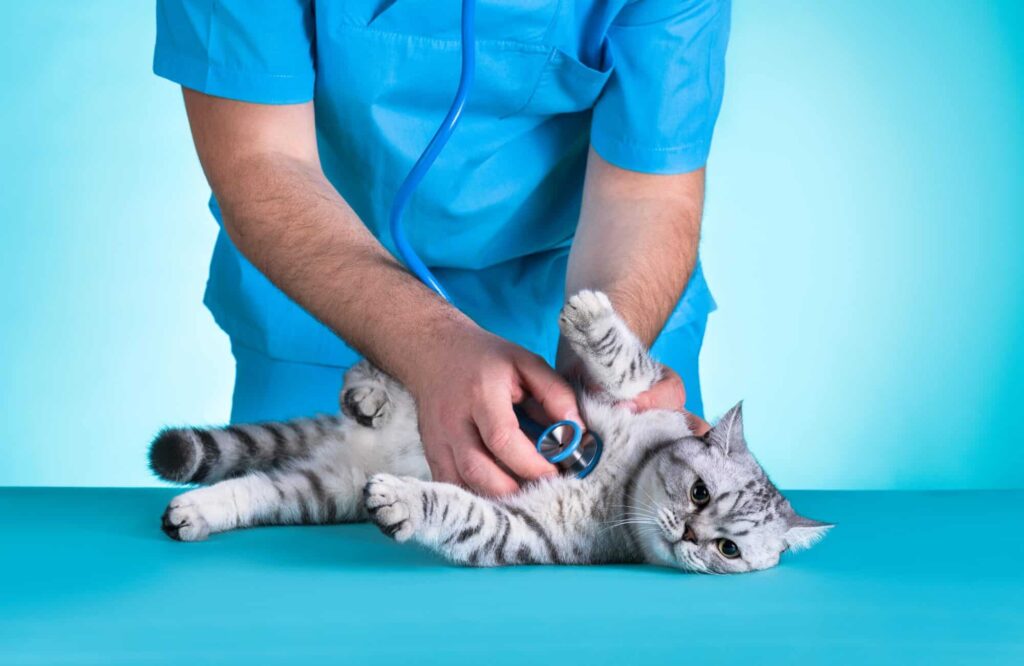
Gastrointestinal Problems
Cats frequently suffer from gastrointestinal problems such as diarrhea, constipation, and vomiting. These issues can be caused by a variety of factors, including dietary indiscretions, infections, parasites, and underlying health conditions.
Diarrhea, Constipation, Vomiting
Diarrhea in cats can result from sudden dietary changes, infections, or parasites. Constipation often arises from dehydration, lack of fiber, or underlying medical conditions. Vomiting can be due to hairballs, eating too quickly, or more serious issues like gastrointestinal obstruction.
Respiratory Issues
Respiratory issues in cats can range from upper respiratory infections to chronic conditions like asthma and bronchitis. These issues often present with symptoms like sneezing, coughing, and difficulty breathing.
Upper Respiratory Infections, Asthma, Chronic Bronchitis
Upper respiratory infections are common in cats, especially in shelters. Asthma and chronic bronchitis are more serious conditions that require long-term management and can significantly impact a cat’s quality of life.
Dental Diseases
Dental diseases are prevalent in cats, with gingivitis, periodontitis, and tooth resorption being the most common. These conditions can cause significant pain and discomfort and can lead to more severe health issues if left untreated.
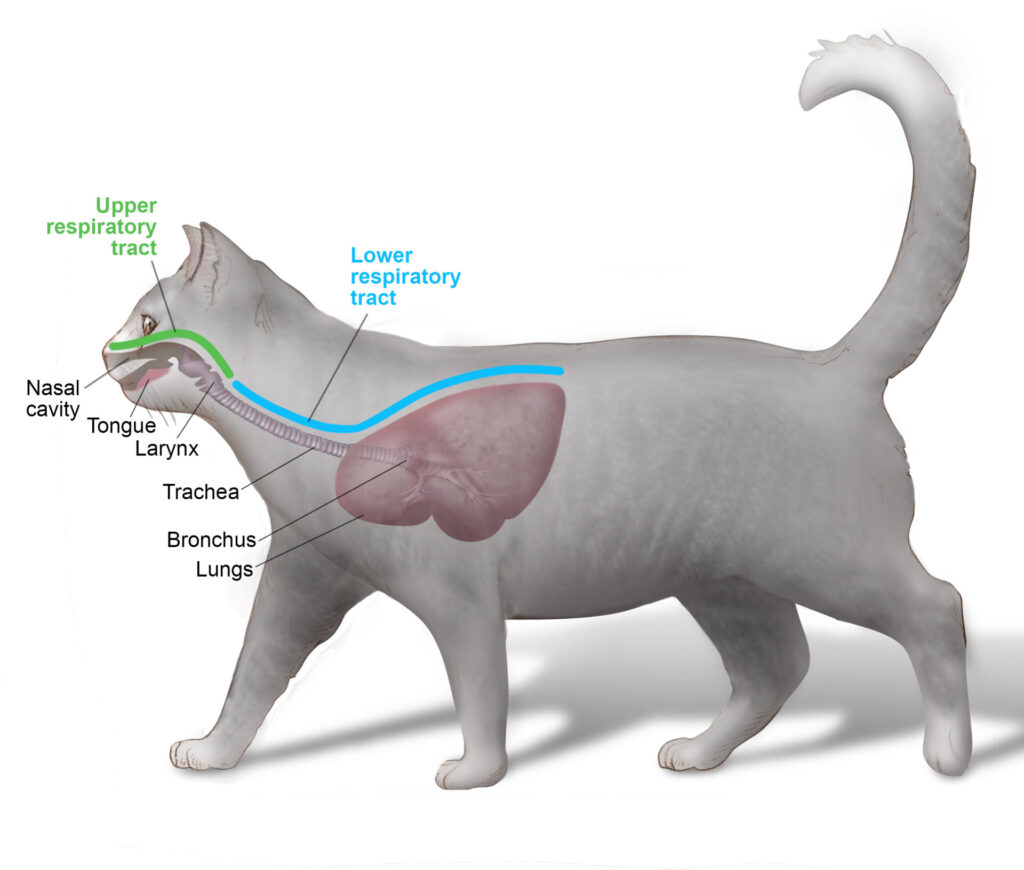
Gingivitis, Periodontitis, Tooth Resorption
Gingivitis is the inflammation of the gums, often caused by plaque buildup. Periodontitis is a more severe form of gum disease that can lead to tooth loss. Tooth resorption involves the breakdown of tooth structure and can be very painful for cats.
Skin and Coat Problems
Skin and coat problems are another common issue in cats. Fleas, allergies, and ringworm are some of the most frequently encountered problems that can affect a cat’s skin and fur.
Fleas, Allergies, Ringworm
Allergies can result from various environmental factors, leading to itching and skin irritation. Ringworm is a fungal infection that can cause hair loss and skin lesions.
Urinary Tract Disorders
Urinary tract disorders are serious health issues in cats. FLUTD, kidney disease, and urinary blockages are common problems that require prompt veterinary attention.
FLUTD, Kidney Disease, Urinary Blockage
Feline Lower Urinary Tract Disease (FLUTD) encompasses a range of conditions affecting the bladder and urethra. Kidney disease is common in older cats and can lead to chronic kidney failure. Urinary blockage is a life-threatening condition that requires immediate intervention.
Obesity in Cats
Obesity is a growing problem in cats, leading to a host of health issues such as diabetes, arthritis, and heart disease. Understanding the causes, prevention, and health risks associated with obesity is essential for keeping your cat healthy.
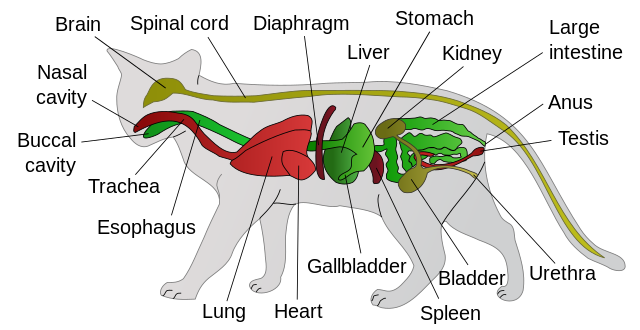
Causes, Prevention, Health Risks
Obesity in cats can be caused by overfeeding, lack of exercise, and genetic factors. Preventing obesity involves providing a balanced diet, encouraging physical activity, and regular monitoring of your cat’s weight. The health risks of obesity include an increased likelihood of diabetes, joint problems, and cardiovascular issues.
Diabetes in Cats
Diabetes is a serious condition that affects many cats, especially those who are overweight. Recognizing the symptoms and understanding the management and treatment options are crucial for diabetic cats.
Symptoms, Management, Treatment
Symptoms of diabetes in cats include increased thirst and urination, weight loss, and lethargy. Management of diabetes typically involves insulin injections, a controlled diet, and regular blood glucose monitoring. Treatment aims to stabilize blood sugar levels and improve the cat’s quality of life.
Hyperthyroidism
Hyperthyroidism is a common endocrine disorder in older cats, characterized by the overproduction of thyroid hormones. It can lead to various health issues if not properly managed.
Symptoms, Diagnosis, Treatment
Symptoms of hyperthyroidism include weight loss, increased appetite, and hyperactivity. Diagnosis is typically made through blood tests measuring thyroid hormone levels. Treatment options include medication, radioactive iodine therapy, and surgery.
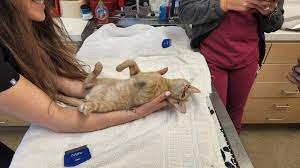
Hypertension in Cats
Hypertension, or high blood pressure, is often secondary to other health issues in cats, such as kidney disease or hyperthyroidism. Managing hypertension is essential to prevent complications.
Causes, Symptoms, Management
Causes of hypertension in cats include chronic kidney disease, hyperthyroidism, and heart disease. Symptoms can be subtle but may include vision problems and lethargy. Management involves treating the underlying cause and possibly administering antihypertensive medications.
Feline Infectious Diseases
Cats are susceptible to several infectious diseases, some of which can be life-threatening. Feline Immunodeficiency Virus (FIV), Feline Leukemia Virus (FeLV), and Feline Infectious Peritonitis (FIP) are notable examples.
FIV, FeLV, FIP
FIV affects the immune system, making cats more susceptible to infections. FeLV can cause various illnesses, including cancer. FIP is a fatal disease caused by a mutation of the feline coronavirus. Vaccination and preventive care are crucial in protecting cats from these diseases.
Heart Diseases in Cats
Heart diseases in cats, such as hypertrophic cardiomyopathy and congestive heart failure, can significantly impact their health and quality of life.
Hypertrophic Cardiomyopathy, Congestive Heart Failure
Hypertrophic cardiomyopathy is the thickening of the heart muscle, which can lead to heart failure. Congestive heart failure occurs when the heart can no longer pump blood effectively, leading to fluid buildup in the lungs and other tissues. Early diagnosis and management are key to improving outcomes.
Neurological Disorders
Neurological disorders in cats, including seizures, vestibular disease, and cognitive dysfunction, can affect their behavior and quality of life.
Seizures, Vestibular Disease, Cognitive Dysfunction
Seizures can be caused by various factors, including epilepsy and brain tumors. Vestibular disease affects balance and coordination. Cognitive dysfunction, similar to dementia in humans, affects older cats and can lead to behavioral changes.
Common Parasites
Parasites such as ticks, worms, and mites are common in cats and can cause a range of health problems.
Ticks, Worms, Mites
Ticks are external parasites that can transmit diseases. Worms, including roundworms and tapeworms, can cause digestive issues. Mites, such as ear mites, can lead to skin irritation and infections.
Vaccination and Preventative Care
Vaccination and preventative care are essential for protecting cats from infectious diseases and other health issues.
Core Vaccines, Non-Core Vaccines, Preventative Measures
Core vaccines protect against common, severe diseases, while non-core vaccines are administered based on a cat’s lifestyle and risk factors. Preventative measures include regular check-ups, flea and tick prevention, and maintaining a clean environment.
Nutrition and Health
Proper nutrition is fundamental to a cat’s health. A balanced diet, special diets for specific health conditions, and addressing nutritional deficiencies are all crucial aspects of feline nutrition.
Balanced Diet, Special Diets, Nutritional Deficiencies
A balanced diet provides all the necessary nutrients for a cat’s overall health. Special diets may be required for conditions like kidney disease or allergies. Nutritional deficiencies can lead to various health issues, so it’s important to ensure your cat’s diet meets their needs.
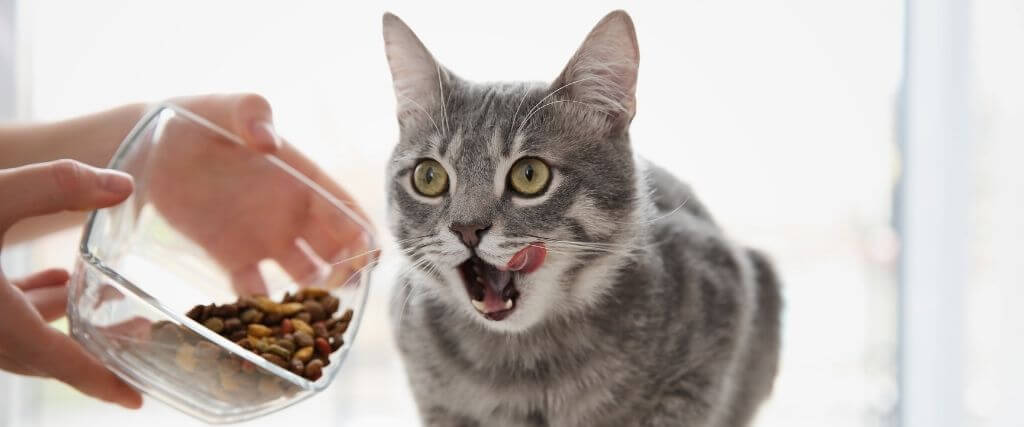
Senior Cat Health Problems
As cats age, they are more prone to certain health problems such as arthritis, dementia, and kidney failure.
Arthritis, Dementia, Kidney Failure
Arthritis causes joint pain and stiffness, affecting mobility. Dementia can lead to confusion and behavioral changes. Chronic kidney failure is common in older cats and requires careful management to maintain quality of life.
Behavioral Issues Related to Health
Health problems can often manifest as behavioral issues in cats, including stress, anxiety, and aggression.
Stress, Anxiety, Aggression
Stress and anxiety in cats can be caused by changes in their environment, health issues, or lack of mental stimulation. Aggression can be a sign of pain or discomfort. Identifying and addressing the underlying cause is key to resolving these issues.
The Importance of Regular Vet Check-ups
Regular veterinary check-ups are essential for early detection and management of health issues in cats.
Frequency, What to Expect, Benefits
Cats should see the vet at least once a year for a check-up, and more frequently if they have ongoing health issues. During a check-up, the vet will examine the cat, discuss any concerns, and recommend preventive care measures. Regular check-ups help in early detection of problems, ensuring timely treatment.
Home Care and Monitoring
Home care and monitoring are crucial for maintaining your cat’s health. Daily checks, grooming, and home remedies can help detect and address health issues early.
Daily Checks, Grooming, Home Remedies
Regular grooming helps maintain skin and coat health and allows for early detection of parasites or skin issues. Home remedies can be useful for minor health problems, but always consult your vet before trying new treatments.
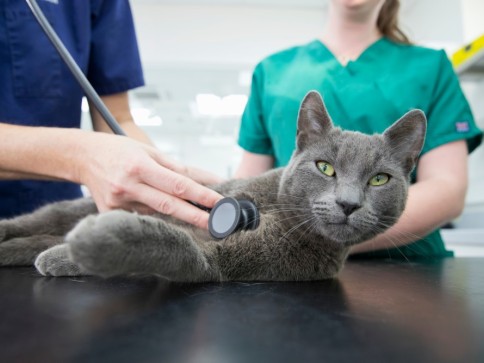
Emergency Situations
Knowing how to recognize and respond to emergency situations can save your cat’s life. Recognizing emergencies, providing first aid, and knowing when to see a vet are all critical.
Recognizing Emergencies, First Aid, When to See a Vet
Emergencies such as severe injuries, difficulty breathing, or sudden collapse require immediate veterinary attention. First aid for cats includes stopping bleeding, performing CPR, and keeping the cat calm and warm. Always contact your vet in an emergency for guidance on the best course of action.
FAQs About Common Cat Health Problems
- How can I tell if my cat is sick? Recognizing changes in behavior, appetite, and litter box habits can indicate illness. If in doubt, consult your vet.
- What should I do if my cat has diarrhea? Ensure they stay hydrated and consult your vet if diarrhea persists for more than 24 hours or is accompanied by other symptoms.
- How can I prevent my cat from getting fleas? Use flea prevention treatments regularly and keep your home clean to reduce the risk of flea infestations.
- What are the signs of dental disease in cats? Signs include bad breath, drooling, difficulty eating, and inflamed gums. Regular dental check-ups are important.
- How often should I take my cat to the vet? At least once a year, or more frequently if they have ongoing health issues. Regular check-ups help detect problems early.
- Can indoor cats get worms? Yes, indoor cats can still get worms from contaminated food, water, or contact with other pets. Regular deworming is recommended.
Conclusion
Understanding common cat health problems is essential for every cat owner. By recognizing the symptoms, providing proper care, and seeking veterinary assistance when needed, you can ensure your feline friend remains healthy and happy. Regular check-ups, a balanced diet, and preventive care play significant roles in maintaining your cat’s well-being. Remember, being proactive and informed about your cat’s health is the best way to ensure a long, joyful life together.





















